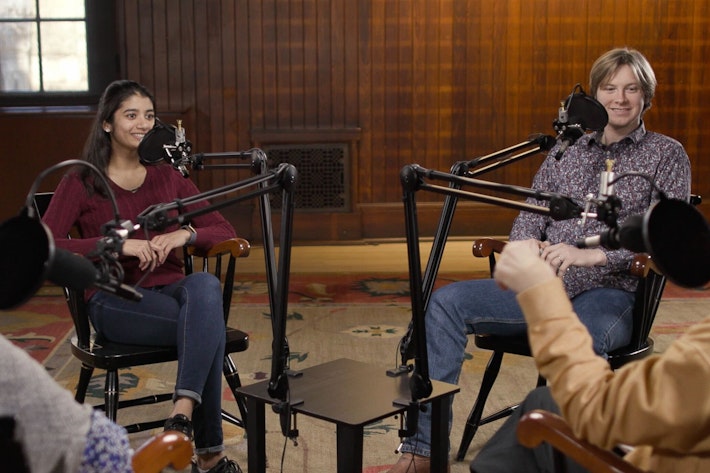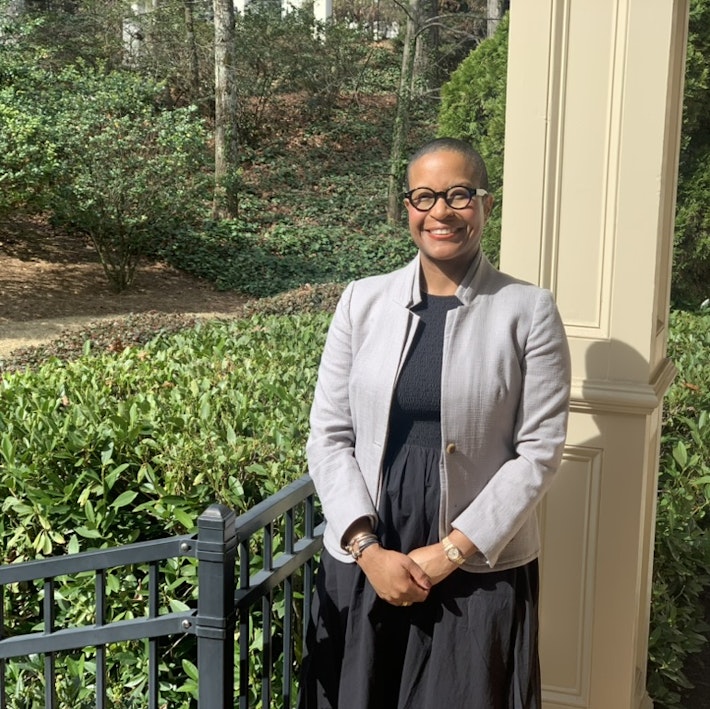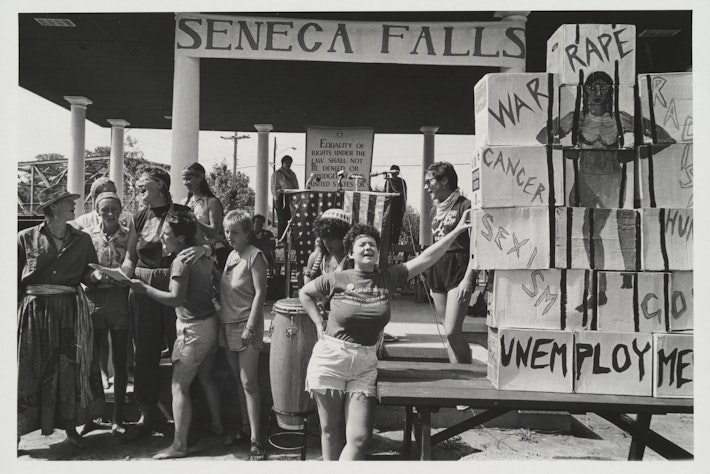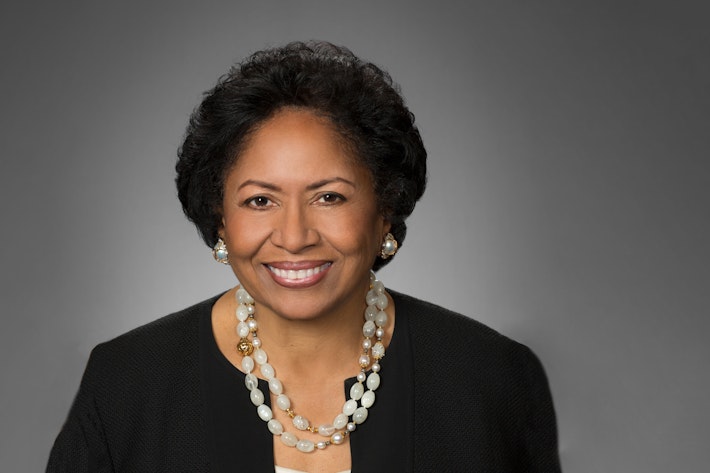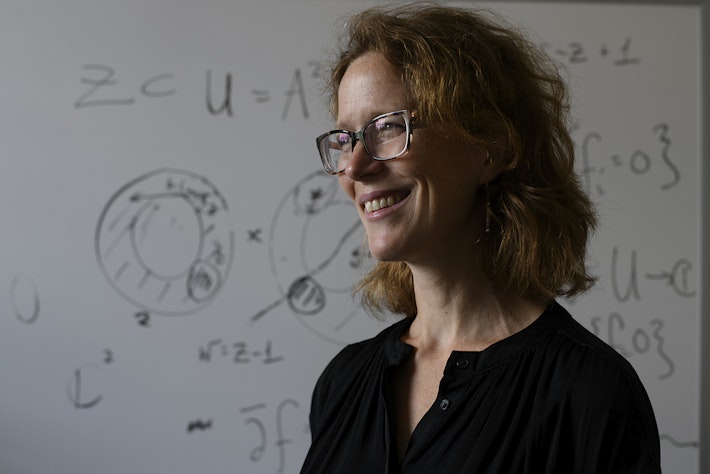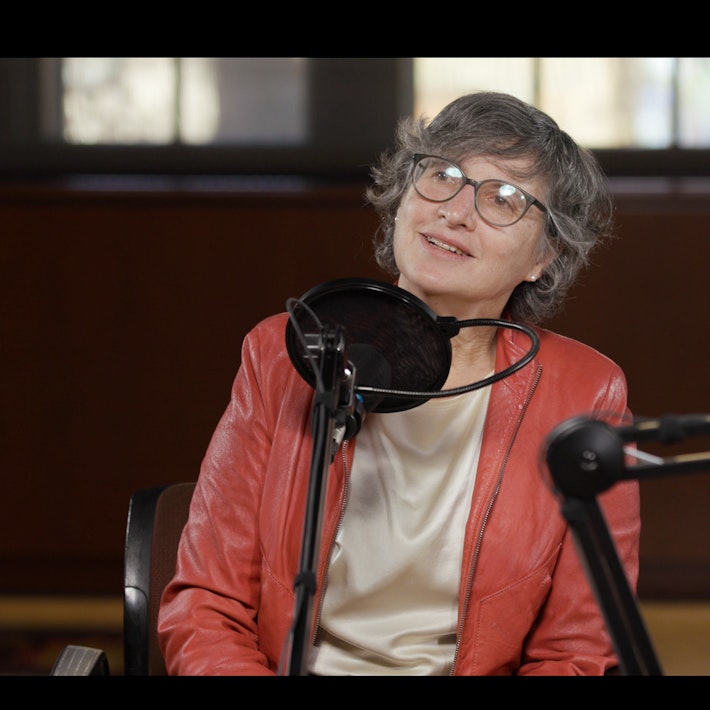Radcliffe Institute Announces 2020–2021 Fellowship Class
The incoming class includes a cartoonist developing a health care–themed comic book; an astronomer interrogating the mysteries of cosmic acceleration; and a poet whose new collection will elevate the experiences of black women.
With COVID-19 upending how we learn and collaborate even as the deeper effects of the pandemic accelerate the need for cross-disciplinary solutions, the creativity and ingenuity that define the Radcliffe Institute’s fellowship program have never felt more urgent. Fortunately, the artists, scholars, and practitioners who make up the Class of 2020–2021 bring a diversity of experience and accomplishment equal to both the mission and the moment.
Among the fellows who make up the incoming class at the Radcliffe Institute for Advanced Study: a cartoonist developing a health care–themed comic book; an astronomer interrogating the mysteries of cosmic acceleration; a poet whose new collection will elevate the experiences of black women; a professor of health policy determined to reduce gun violence; a biographer of the novelist and essayist James Baldwin; a scientist seeking to advance pro-social computing; a war veteran and fiction writer working on a story collection informed by his service in Iraq and Afghanistan; an author probing income inequality in California; a historian with a personal interest in the impact and lessons of Hurricane Katrina; and a physician passionate about the potential of women as agents of peace.
“This fellowship class, taking shape amid a devastating pandemic, reflects our conviction that the cross-disciplinary exchange and deep exploration that Radcliffe enables are critically important for Harvard and for the wider world—especially in times like these, when we must confront unprecedented challenges,” said Radcliffe Dean Tomiko Brown-Nagin RI ’17, who is also the Daniel P. S. Paul Professor of Constitutional Law at Harvard Law School and a professor of history in the Faculty of Arts and Sciences.
“Our fellows will advance human understanding in the sciences, social sciences, and humanities. Their creative work will change how we see the world. And they will pursue solutions to some of the most pressing issues facing our society. Their endeavors will be immeasurably enhanced by the unique intellectual cross-fertilization that takes place at Radcliffe.”
The 2020–2021 fellowship year will be virtual, with the possibility of a residential component, pending decisions on Harvard-wide policies by University leaders and informed by epidemiological models of the spread of COVID-19 in the United States. The acceptance rate for the incoming class was 2.8 percent, from a pool of nearly 1,400 applicants. The group represents six countries and a wide range of disciplines. Fellows and their projects include:
Tonya M. Foster (Lisa Goldberg Fellow), a poet at the California College of the Arts, will write poems that consider the myriad ways that black women have laid claim to their bodies and selves, guided in part by real-life records of sexual assaults and personal accounts of significant political events.
Leslie M. Harris (Beatrice Shepherd Blane Fellow), a historian at Northwestern University, will make progress on a narrative that connects family history, Hurricane Katrina, and the growing threat of climate change.
David Hemenway (Elizabeth S. and Richard M. Cashin Fellow), a professor of health policy at the Harvard T.H. Chan School of Public Health, will expand on his efforts to curb gun violence.
Will Mackin (Perrin Moorhead Grayson and Bruns Grayson Fellow), a fiction writer, will work on a story collection based on his experiences as a special operations soldier in Iraq and Afghanistan.
Paul Martini (William Bentinck-Smith Fellow), an astronomer at the Ohio State University, will build on his contributions to the Dark Energy Spectroscopic Instrument in an investigation of the origin of cosmic acceleration.
Alaa Murabit, a physician who sits on the United Nations High-Level Commission on Health Employment and Economic Growth, will develop a project aimed at elevating the potential of women as agents of peace.
Ana Paiva (Katherine Hampson Bessell Fellow), a computer scientist at Instituto Superior Técnico, Universidade de Lisboa, will tackle a project that toggles between human altruism and machine design.
Miriam Pawel (Frieda L. Miller Fellow), a New York Times contributor and the author of The Browns of California, will research and write about inequality in California, zeroing in on some of the most promising ideas for closing income gaps.
Robert F. Reid-Pharr (Carl and Lily Pforzheimer Foundation Fellow), a professor of studies of women, gender, and sexuality and a professor of African and African American studies at Harvard University, will continue work on his biography of the novelist and essayist James Baldwin. (Reid-Pharr talked at length about the book at the Radcliffe event “Writing Black Lives.”)
James Sturm (Mary I. Bunting Institute Fellow), an artist affiliated with the Center for Cartoon Studies, will create a comic book aimed at stimulating conversations about the US health care system.
Claudia Rizzini, the new executive director of the Fellowship Program, will welcome her first class to the Radcliffe community under less-than-ideal circumstances. But her excitement for their potential as creators and researchers, both in individual pursuits and as a group, is undiminished.
“This is a special class of fellows, joining the Radcliffe Institute at a challenging time in history,” she said. “I look forward to welcoming our fellows and working with them to build a dynamic community that enriches their projects. Although we will begin our work together virtually, I am confident that their intellectual and creative energies will be unimpeded.”
Click here for a full list of fellows and their projects.
About the Radcliffe Institute for Advanced Study at Harvard University
Radcliffe is Harvard University’s institute for advanced study: a laboratory of ideas that brings together students, scholars, and practitioners from the humanities, sciences, social sciences, arts, and professions and engages with questions that demand cross-disciplinary exploration. Each year, the Institute hosts leading scholars, scientists, and artists from around the world in its renowned residential fellowship program. Radcliffe fosters innovative research collaborations and offers hundreds of public lectures, exhibitions, performances, conferences, and other events annually. The Institute is home to the Schlesinger Library, the nation’s foremost archive on the history of women, gender, and sexuality. For more information about the Radcliffe Institute, visit www.radcliffe.harvard.edu.


